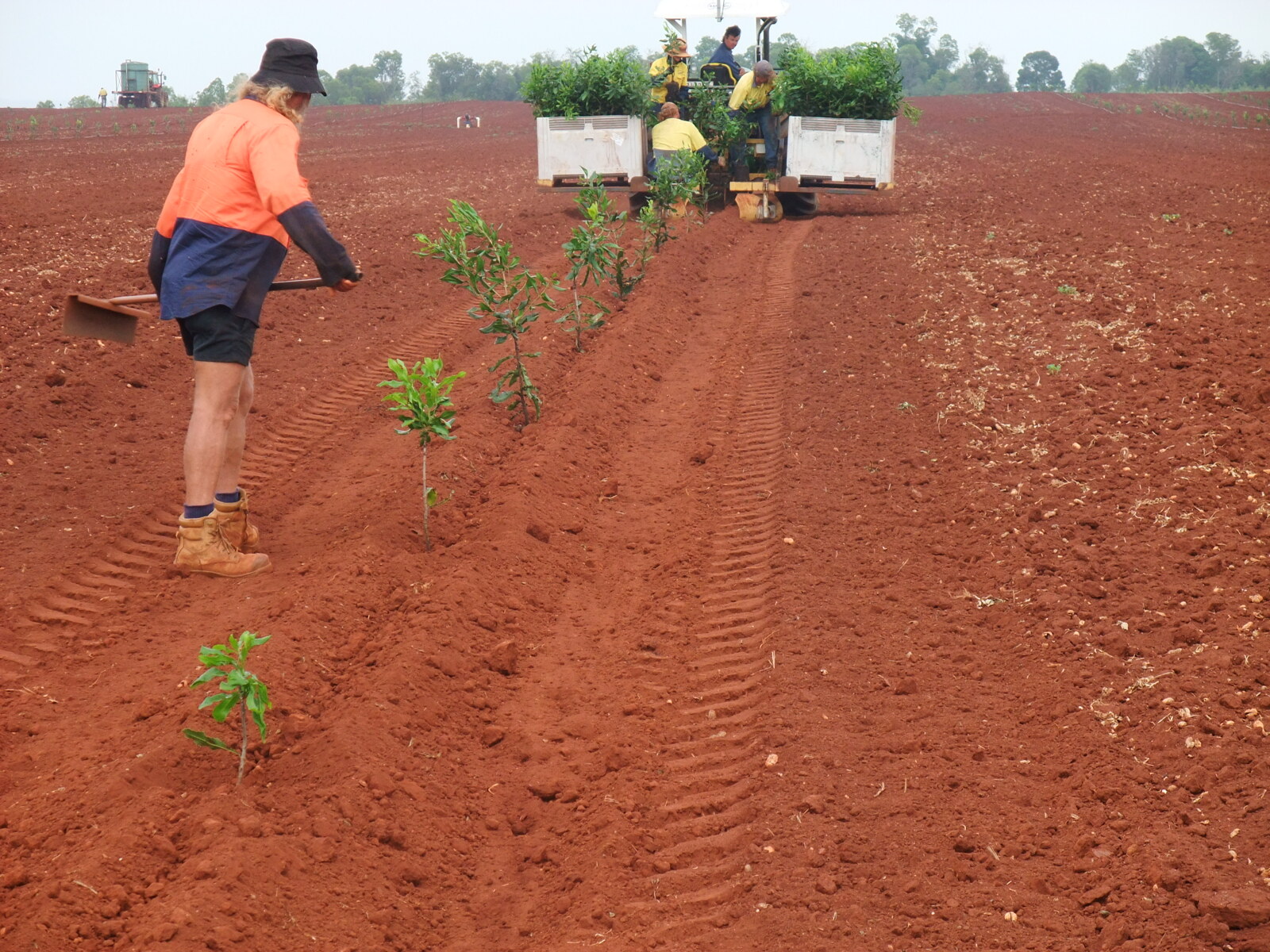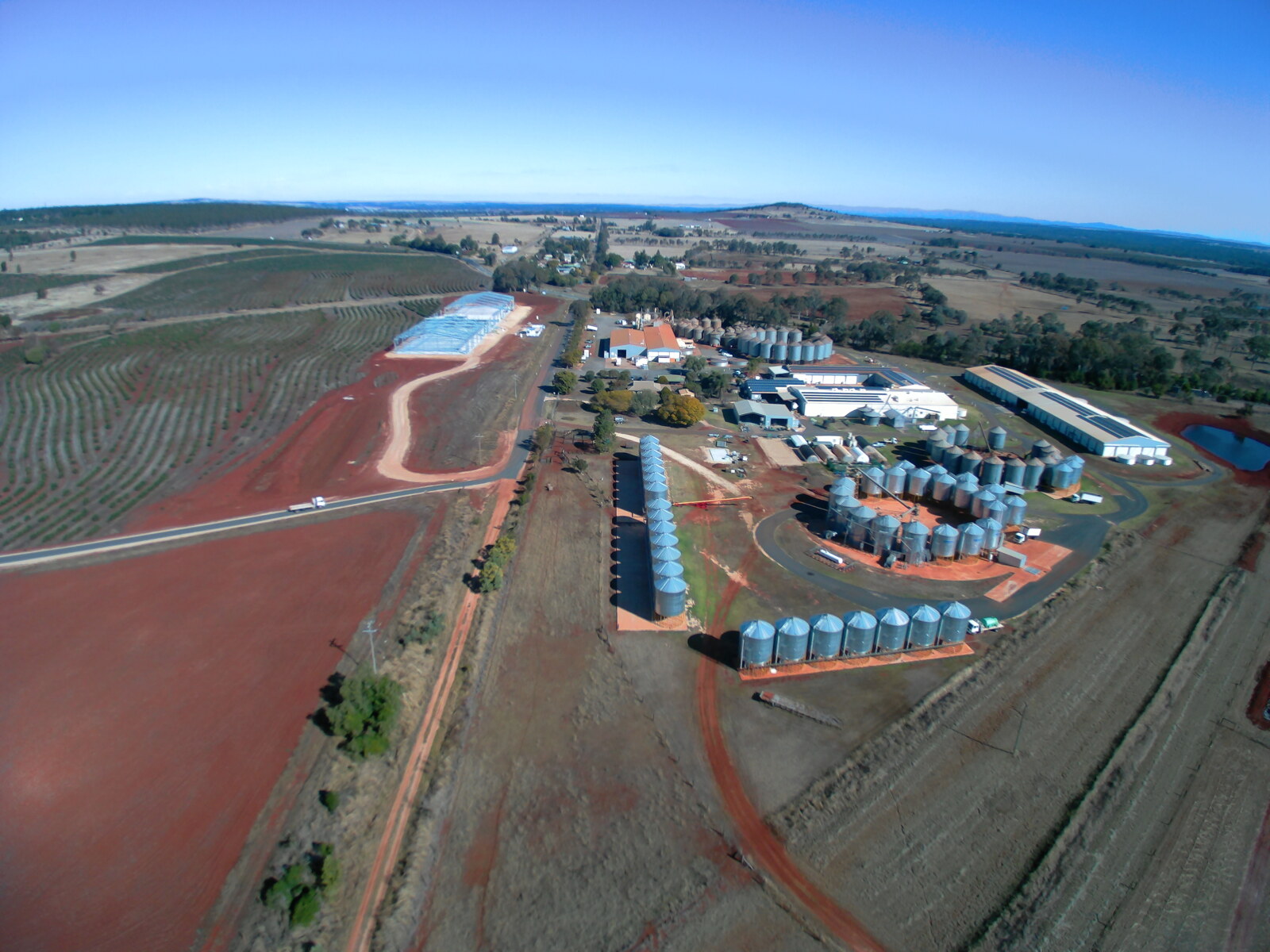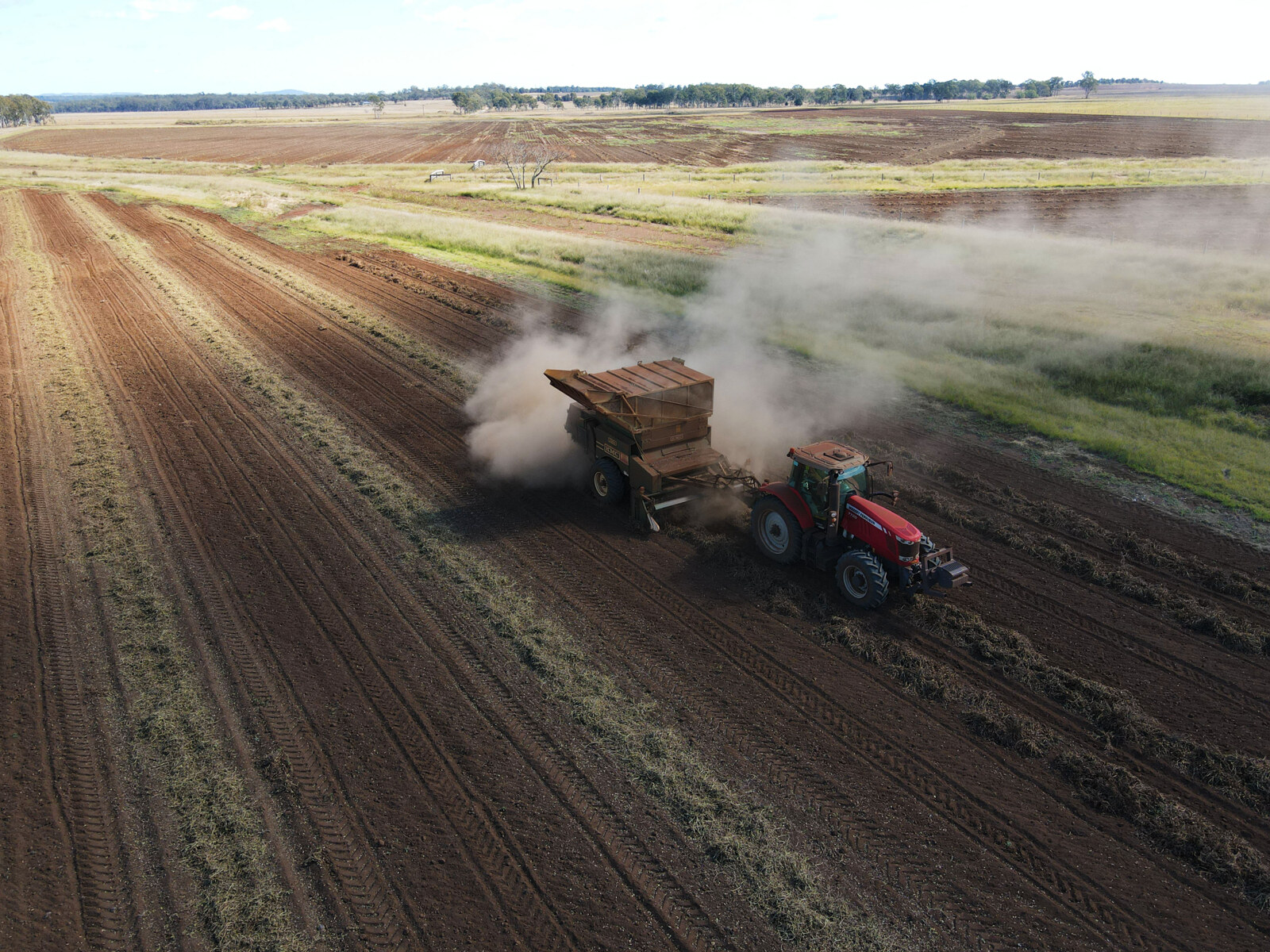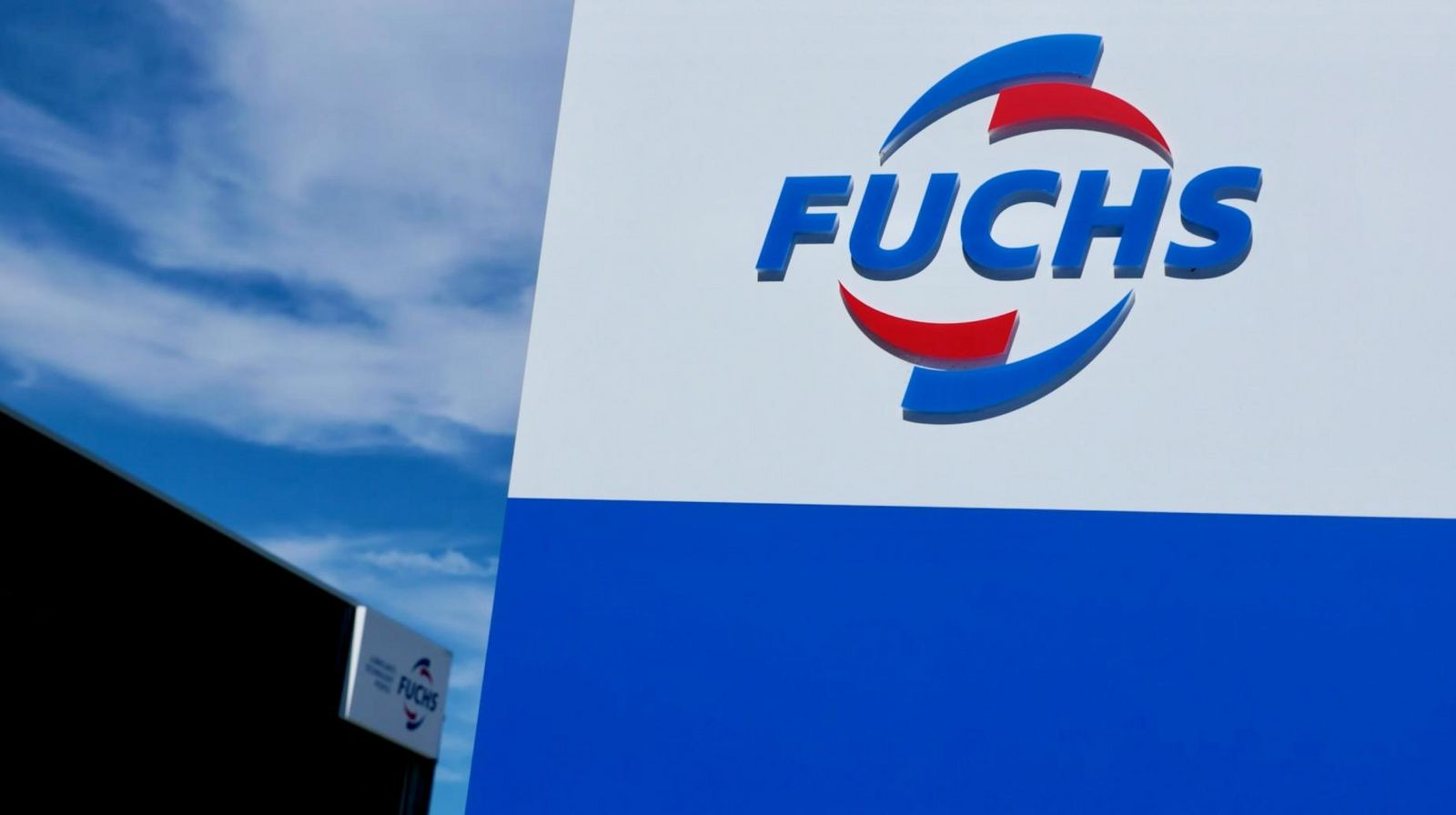G CRUMPTON & SONS
FUCHS crucial to maintaining a well-oiled farming machine
Growing the humble peanut isn’t as simple as it sounds. Besides the usual risks involved in farming – including drought, flood and disease, peanut farming has added complexities. Soil preparation is crucial; and needs to take place months before planting to ensure seeds are planted into soft, well-worked soil just a few centimetres below the surface.
Depending on the variety of peanut planted, a crop usually takes between 120 and 150 days to mature from the time of planting – usually between November and January. During this time the green leafy bush spreads on top of the ground while the seed pods develop under the ground. The grower needs to closely monitor the crop for weed infiltration and fungus infection as well as ensuring the soil surrounding the plants is well maintained and remains soft throughout the development stage.

Managing the inherent risks involved in this process – and beyond into processing a final product, has been crucial to the success of family-owned G Crumpton & Sons, which has grown to among Australia’s largest peanut growers and processors from foundations that trace back to the early 1900’s when current directors Sonie and Darren Crumpton's ancestors began growing peanuts in the Wide Bay-Burnett region of Queensland. Back then peanuts were pulled from the ground by hand and processed using stationary thrashing machines.
Firstly, over time they’ve acquired rural properties for sale in the Wide Bay and Burnett region to diversify their land holdings (Kingaroy, Booie, Crawford, Memerambi, Wooroolin, Tingoora and Cushnie) and help reduce risks from things such as drought, flood and disease. They’ve also spread-out planting times with early plantings taking place early (before November) at the ideal planting time (during November) and late (after November). This practice also helps to reduce risk as peanuts planted at different times produce different yields and quality. By planting at different times, it helps reduce risks from factors such as unpredictable weather.
All up, G Crumpton & Sons currently farms around 400 hectares of peanuts a year; out of a total of around 3,500 hectares under crop, including Australian native medicinal plant Duboisia; as well as 2,000 head of Santa Getrudis cattle. The business has also moved up the supply chain to diversify both risk and reward. Early on, the Crumpton family formed a partnership with Allan and June Ellwood to start a peanut shelling business before later going out on their own, building the Kingaroy blanching plant on the current site at Murphy’s Road, Crawford

Since then the plant has continued to grow to now be an industry-leading peanut processing plant with a capacity to process 15,000 tonnes of peanuts annually into a vast array of peanut products, from raw to refined products such as peanut cooking oil, roasted peanuts and blanched peanuts.
Out in the field, G Crumpton & Sons has sought to minimise risk through a strong focus on maintaining the large fleet of farm machinery critical to ensuring a successful harvest. CEO Sonie Crumpton, whose remit includes managing production and operations at the peanut processing facilities, says the key to maximising uptime of the fleet of more than 150 farm machines – including Massey Ferguson tractors, Fuso trucks, Mitsubishi and Toyota utes, Kubota ATV’s and zero-turn mowers, and a raft of specialised harvesters from the likes of Case IH – is simple: maintenance. For that, the business has a dedicated maintenance team. “Plus we have at least two of everything. When you’re busy you can’t afford to be stopped (by mechanical failures). When the harvest is on you need to keep going,” he says.

And crucial to a well-maintained fleet of farm machinery is quality suppliers, especially for all-important oils and lubricants. For that, G Crumpton & Sons puts its trust in FUCHS. Crumpton says the business switched to FUCHS Lubricants 10 years ago. “We started buying lubricants in bulk and we got a better deal from FUCHS. Previously we bought on an as-needs basis in 20-litre drums every week,” he says. It now buys in 1,000-litre shuttles. Crumpton says FUCHS’s range of products are suitable for all makes and models of farm machinery in the fleet. Key products used include engine and transmission oils. They’re also able to supply “the right product at the right time,” he adds. “Deliveries are always on time. Since we started using FUCHS we haven’t had any problems. It’s a good quality product at a good price.”

Local manufacture is “definitely a positive”. “FUCHS’s products being made in Australia is important to us; as an Australia-owned business we prefer to support Australian-made products and jobs as well,” he says.
FUCHS offers a comprehensive range of specialised lubricants for the Australian agriculture and agronomics industries, which meet or exceed all major machinery manufacturers’ performance requirements. No matter what your crops and machinery might be, FUCHS has a specialist lubricant to protect and maintain your equipment, from engines and transmissions, right through to hydraulics, both in the paddock and the shed!
Source: https://farmbuy.com/post/farm-machinery-lubes-wide-bay-burnett
